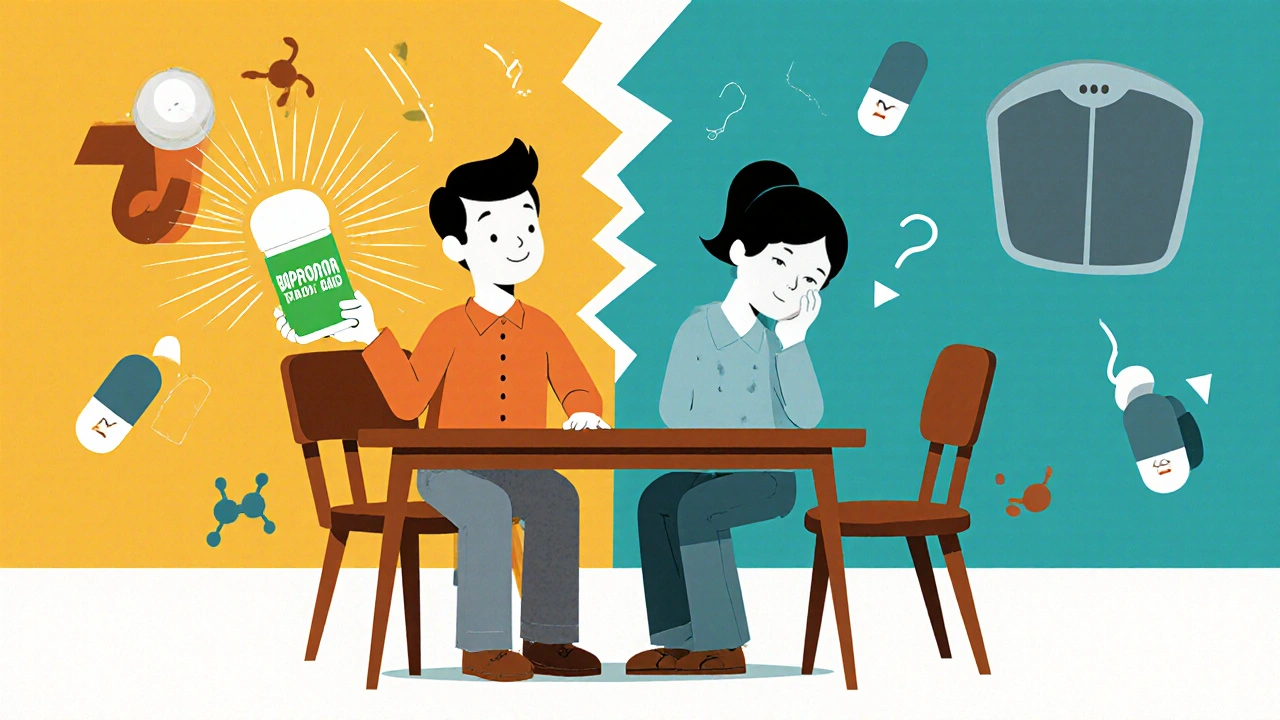Wellbutrin: What It Is, How It Works, and What You Need to Know
When people talk about antidepressants, most think of SSRIs like Prozac or Zoloft. But Wellbutrin, a brand name for the drug bupropion, is a different kind of antidepressant that doesn’t work the same way. Also known as bupropion, it’s one of the few antidepressants that doesn’t primarily target serotonin. Instead, it boosts dopamine and norepinephrine—two brain chemicals tied to motivation, focus, and energy. That’s why some people feel more alert and less sluggish on Wellbutrin compared to other meds.
Wellbutrin isn’t just for depression. It’s also FDA-approved to help people quit smoking, under the brand name Zyban. The same mechanism that lifts mood—increasing dopamine—also reduces cravings and withdrawal symptoms. Many users report less irritability and fewer urges to smoke after starting it. It’s even used off-label for ADHD, especially in adults who can’t tolerate stimulants or want to avoid them. And unlike some antidepressants, it rarely causes weight gain or sexual side effects, which is why so many people stick with it.
But it’s not for everyone. People with a history of seizures, eating disorders like anorexia or bulimia, or those suddenly stopping alcohol or benzodiazepines should avoid it. The risk of seizures goes up with higher doses, so doctors start low and go slow. It also interacts with other meds—like MAOIs or certain cold medicines—so always tell your doctor what else you’re taking. And while it doesn’t usually hurt your sex life, some people still get headaches, dry mouth, or trouble sleeping, especially at first.
What you’ll find below is a collection of real, practical posts that connect Wellbutrin to broader topics in mental health, drug safety, and medication comparisons. You’ll see how it stacks up against other antidepressants, what to watch for when combining it with alcohol or other drugs, and how it fits into the bigger picture of psychiatric medication use. These aren’t generic summaries—they’re detailed, evidence-based guides written for people who need to understand what’s really going on with their meds.

Bupropion vs. Alternatives: What Works Best for Depression and Quitting Smoking
Bupropion is a unique antidepressant and smoking cessation aid that boosts dopamine and norepinephrine. Learn how it compares to SSRIs, SNRIs, varenicline, and other alternatives for depression, ADHD, and quitting smoking.
Read More